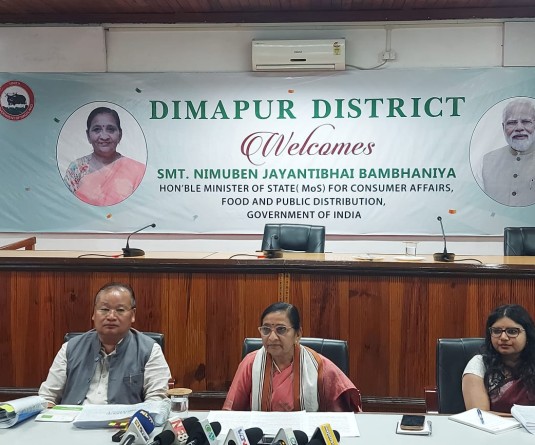
Zunheboto, October 13 (MExN): The Sümi Hoho has strongly appealed to the Nagaland Government for the prompt and effective implementation of the Register of Indigenous Inhabitants of Nagaland (RIIN), with a single unified cut-off date,
The RIIN is an essential initiative to safeguard the identity, rights, and privileges of the indigenous people of Nagaland, ensuring that their unique heritage is preserved for future generations, it stated.
In a rapidly changing world, where external influences and migrations continue to shape the region, it is more critical than ever to protect the indigenous people’s distinct identity and cultural heritage, noted a press release issued by Sumi Hoho President Dr Vihuto Asumi.
The RIIN serves as a legal safeguard to prevent the dilution of indigenous rights, allowing only those with genuine ties to the land to claim the benefits and protections afforded to native inhabitants, it said.
Without such a system, there could be a risk of misrepresentation, resulting in the erosion of cultural fabric, it added.
According to the Sümi Hoho, the establishment of RIIN is necessary to maintain social harmony.
By clearly defining and documenting who qualifies as an indigenous inhabitant, we can prevent future conflicts or confusion over land ownership, customary laws, and political representation, it underscored.
A transparent and well-implemented RIIN will also strengthen the framework for equitable development and resource allocation, ensuring that benefits and opportunities are fairly distributed among the rightful citizens of Nagaland, it added.
Reiterates December 1, 1963 cut-off date
While lauding the Nagaland Government’s recent decision to move forward with the implementation of RIIN, the Sümi Hoho urged for its swift execution.
In addition, it reiterated that the cut-off date of December 1, 1963, must be applied uniformly across all regions of Nagaland, including Dimapur.
The alternative cut-off date of November 21, 1979, proposed for Dimapur, is not acceptable as it would create inconsistencies in the verification process, it added.
A single unified cut-off date, the Sümi Hoho contended, is essential for fairness and to uphold the integrity of the indigenous identity throughout the state.
The verification process for Indigenous Inhabitant Certificates should be conducted with the highest level of transparency and fairness, it said.
Further noting that active participation of traditional village authorities and institutions will ensure that the process remains legitimate and credible, the Sümi Hoho pledged its full cooperation with the government and relevant authorities to facilitate a smooth and fair verification process.
At the same time, however, it urged the State Government to maintain strict measures to prevent any misuse of the process.
This is not to exclude anyone, but to ensure that the RIIN fulfils its original purpose of protecting the rights of indigenous people in a way that is fair and just to all, it said.
Any claims must be handled carefully to avoid errors or exploitation of the system, it added.





